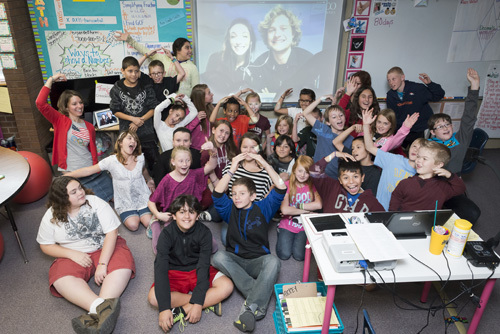
They are world famous Olympic and Paralympic Champions, including Meryl Davis and Charlie White, Sue Bird, Elana Meyers, Josh Sweeney, Curt Tomasevicz, David Oliver, April Holmes and Erin Hamlin. They are led by 2010 Olympic bobsled gold medalist Steve Mesler and Dr. Leigh Mesler Parise. They are the first and only in-school program to connect athletic champions with students in high-need schools on an ongoing basis. They build strong relationships and inspire students to believe, to persevere and to always dream BIG. Does the concept give you goose bumps?
Classroom Champions was recently announced as a winner of Google’s Giving Through Glass competition. If you don’t know what this awesome Google initiative is all about, I suggest you Google it fast!
What can Classroom Champions teach us about mentoring? Today in the Παγκόσμια Έρευνα για την Εκπαίδευση, Έχω προσκληθεί 4 Champions from the world of sports and our classrooms to reveal their 12 Lessons From The Champions of Classroom Champions. It is my pleasure to welcome the 2010 Olympic Gold Medalist for Bobsled and Founder of Classroom Champions, Steve Mesler; Olympic Gold and Silver Medalist, Ice Dancing and the 2014 Dancing with the Stars Champion, Meryl Davis; Βαθμός 8 teacher at St Joseph Catholic School in Ontario, Jenn Nalon; and School Principal from Waller, Τέξας, Todd Nesloney.

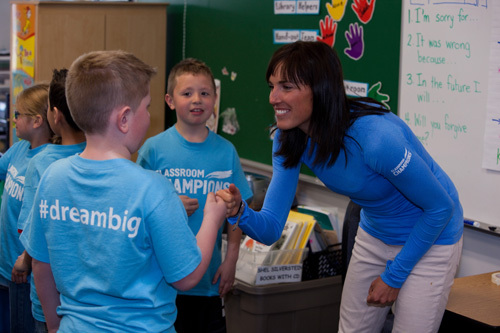
12 Lessons From The Champions of Classroom Champions:
Meryl Davis, warm us up!
1. Get personal and make a difference.
When speaking with students, it’s easy to preach ideas and ideals: have a goal, work hard, and never give up. Pointing a child in the “right direction” isn’t always enough to manifest true interest. My ice-dancing partner, Charlie White, and I have found that telling our personal stories and sharing our own struggles seem to generate more positive responses from our students. We love getting emails from our teachers about how a child was positively impacted by hearing our stories. Επί πλέον, we’ve been told that sharing our challenges increases tolerance and acceptance within the classroom towards students who may be facing similar problems.
2. The cool kids.
Over the course of our two school years with Classroom Champions, Charlie and I have realized how our roles so drastically differ from that of a teacher. When we began creating videos and speaking with our students, I think we felt as though we were stepping into these classrooms to actually teach a lesson each month. As time went on, ωστόσο, we realized that our students saw us more as friends than teachers. The beauty of this dynamic is that our students can relate to us and allow us to lead by example. Our teachers will often tell us that their students talk about us, “Meryl and Charlie,” as friends; Είναι σαν να είμαστε παρόντες στην καθημερινή τους ζωή. What an incredible opportunity this relationship gives us to reach these kids and, συγχρόνως, gives our teachers an opportunity to use us as a learning tool.
3. Common ground.
Each school year, we dedicate a video lesson to “κοινότητα”. We focus on the importance of community and the role our students can play in their communities. The classroom itself, as we say, is an important and relevant “κοινότητα” for our students. Being kind, supporting others and asking for help when needed, για παράδειγμα, are ideals that can be difficult to integrate into these classrooms. Having monthly video lessons to share and mutual “Φίλοι” in the athlete mentors seems to encourage additional camaraderie and a sense of community within the classroom.
Jenn Nalon, keep us moving!
4. It takes a village to raise a child.
And the child is proud and thankful for every member of his/her village. In the program, students are encouraged and cheered on by their teacher, κοινότητα, athlete mentor, Steve (Mesler) and all members of the CC team, not to mention the entire CC teacher team via our Ning site. Our students are flourishing as they take great pride in sharing their success with our entire team and have been invited to continue sharing with their athlete mentor, as they enter high school. We celebrate DREAMing BIG!
5. Network with people who share the same passion.
The amount I learn from my CC friends far exceeds what I ever thought was possible in an online forum setting. My desire to learn with and from my CC peers, who come from different geographical regions, provinces, states and countries with various mandates, is a daily occurrence. We also take pride in each other and keep contact across North America via Twitter, Instagram, Facebook and Ning. Our shared passion keeps learning alive in an electrifying way. Our village has grown but our need to be in contact is evident too. We can’t wait until we get together again next year when the fire within strengthens.
6. Relationships and goal setting are the keys to every success.
I have learned through student success that these two qualities are key to each day. We have built so many valuable relationships and expressed our concern and excitement for each other’s success. The relationships strengthen and the goals get larger.

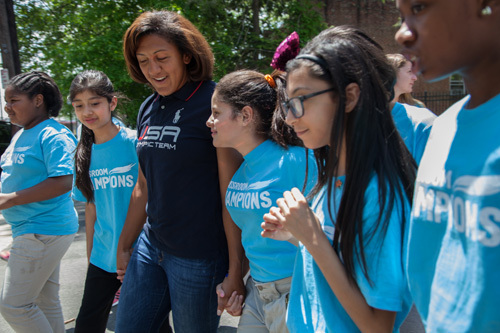
Todd Nesloney, go for it!
7. Επιμονή.
I don’t think I ever truly grasped the concept of that word, επιμονή, before taking part in Classroom Champions. My students had Paralympic athlete Joshua Sweeney as our athlete. There are very few people in my life that I now admire as much as Josh. Lessons that he was able to express to my students through the trials he has been through are irreplaceable. There were several times through our Classroom Champions lessons where I had kids in tears because they were so emotionally moved.
8. Believe.
Classroom Champions taught me, and my students, about the power that lies in believing in yourself and believing that no matter where you come from you can be successful and you can make a difference with goals, δυσκολη δουλεια, and determination. When Josh visited our school and spoke to the 700 pre-K to 5th graders, you could have heard a pin drop. He shared his life story and spoke to each of those kids’ hearts. Every child left that day feeling like they mattered.
9. Power of Connecting.
Even though my students learned through recorded videos of Josh, every student felt like he had made the video especially for them. They connected to him, bonded with him, and learned so much. When we did our Google Hangout with Josh, my kids were just enamored and had a million questions for him. My students, in a tiny town in Texas, were able to connect with, and learn from, an Olympic athlete because of the power of technology.

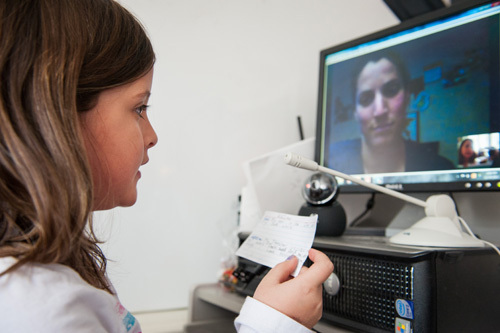
Steve Mesler, bring home the Gold!
10. A question is the most powerful weapon we all possess.
Whether you’re trying to understand someone’s point of view, trying to figure out a complex problem, or wanting someone to volunteer for an initiative, the single greatest weapon you have in your arsenal is a question. As we’ve built Classroom Champions into the international NGO it’s become, I’ve learned that if you don’t ask questions, you’ll never succeed. I’ve learned that, σε γενικές γραμμές, people want to help; they want to answer questions – it’s how we’re built. Remember that and you can accomplish more than you think.
11. Relationships make the world go round.
The first thing we do at Classroom Champions is look to foster a relationship between Olympian and student. If kids feel connected to their athlete, if they feel like they can depend on them, they begin to trust them and good things happen. In building relationships, you have to remember to be consistent in your words and your actions.
12. Crack the volunteering code and change the world.
People are busy these days. Olympians, Paralympians, and teachers are just as busy and overwhelmed as the rest of the world. How do you engage busy people to volunteer to make a difference? It’s the same as paying someone with cash – reward their effort with compensation. The only difference? Compensate them with the ability to see their impact with quality metrics, compensate them with strong relationships, and compensate them with feedback that will make them better at the things they care about.
For more articles about: Παγκόσμια Εκπαιδευτική Μεταρρύθμιση
For more information on Classroom Champions
For more information on Steve Mesler
For more information on Todd Nesloney
For more information on Meryl Davis
For more information on Charlie White
For more information on Jenn Nalon


All photos are courtesy of Classroom Champions
Έλα μαζί μου και παγκοσμίως γνωστή ηγέτες σκέψης συμπεριλαμβανομένου του Sir Michael Barber (Ηνωμένο Βασίλειο), Ο Δρ. Michael Block (ΗΠΑ), Ο Δρ. Leon Botstein (ΗΠΑ), Καθηγητής Clay Christensen (ΗΠΑ), Ο Δρ. Linda Ντάρλινγκ-Hammond (ΗΠΑ), Ο Δρ. MadhavChavan (Ινδία), Ο καθηγητής Michael Fullan (Καναδάς), Ο καθηγητής Howard Gardner (ΗΠΑ), Ο καθηγητής Andy Hargreaves (ΗΠΑ), Ο καθηγητής Yvonne Hellman (Η Ολλανδία), Ο καθηγητής Kristin Helstad (Νορβηγία), Jean Hendrickson (ΗΠΑ), Καθηγητής Rose Hipkins (Νέα Ζηλανδία), Καθηγητής Cornelia Hoogland (Καναδάς), Αξιότιμο Jeff Johnson (Καναδάς), Η κ. Chantal Kaufmann (Βέλγιο), Ο Δρ. EijaKauppinen (Φινλανδία), Υφυπουργός TapioKosunen (Φινλανδία), Ο καθηγητής Dominique Λαφοντέν (Βέλγιο), Ο καθηγητής Hugh Lauder (Ηνωμένο Βασίλειο), Καθηγητής Ben Levin (Καναδάς), Lord Ken Macdonald (Ηνωμένο Βασίλειο), Καθηγητής Barry McGaw (Αυστραλία), Shiv Nadar (Ινδία), Καθηγητής R. Natarajan (Ινδία), Ο Δρ. PAK NG (Σιγκαπούρη), Ο Δρ. Denise Πάπα (ΗΠΑ), Sridhar Rajagopalan (Ινδία), Ο Δρ. Diane Ravitch (ΗΠΑ), Richard Wilson Riley (ΗΠΑ), Sir Ken Robinson (Ηνωμένο Βασίλειο), Καθηγητής PasiSahlberg (Φινλανδία), Καθηγητής Manabu Sato (Ιαπωνία), Andreas Schleicher (PISA, ΟΟΣΑ), Ο Δρ. Anthony Seldon (Ηνωμένο Βασίλειο), Ο Δρ. David Shaffer (ΗΠΑ), Ο Δρ. Kirsten Μοναδική Are (Νορβηγία), Στήβεν Spahn (ΗΠΑ), Yves Theze (LyceeFrancais ΗΠΑ), Ο καθηγητής Charles Ungerleider (Καναδάς), Ο καθηγητής Tony Wagner (ΗΠΑ), Sir David Watson (Ηνωμένο Βασίλειο), Καθηγητής Dylan Γουίλιαμ (Ηνωμένο Βασίλειο), Ο Δρ. Mark Wormald (Ηνωμένο Βασίλειο), Ο καθηγητής Theo Wubbels (Η Ολλανδία), Ο καθηγητής Michael Young (Ηνωμένο Βασίλειο), και ο καθηγητής Minxuan Zhang (Κίνα) καθώς εξερευνούν τα μεγάλα ζητήματα της εκπαίδευσης εικόνα που όλα τα έθνη αντιμετωπίζουν σήμερα. Η Παγκόσμια αναζήτηση για την Εκπαίδευση της Κοινότητας Σελίδα
C. M. Rubin είναι ο συγγραφέας των δύο πολυδιαβασμένα online σειρά για την οποία έλαβε ένα 2011 Βραβείο Upton Sinclair, “Η Σφαιρική Αναζήτηση για Εκπαίδευση” και “Πώς θα μας Διαβάστε?” Είναι επίσης ο συγγραφέας του μπεστ σέλερ τρία βιβλία, Συμπεριλαμβανομένων Η Ρεάλ Αλίκη στη Χώρα των Θαυμάτων, Είναι ο εκδότης του CMRubinWorld, και είναι ένα Ίδρυμα Fellow δι'υπερήχων.
Ακολουθήστε C. M. Rubin στο Twitter: www.twitter.com/@cmrubinworld


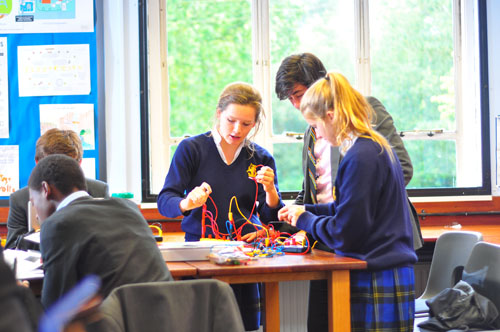
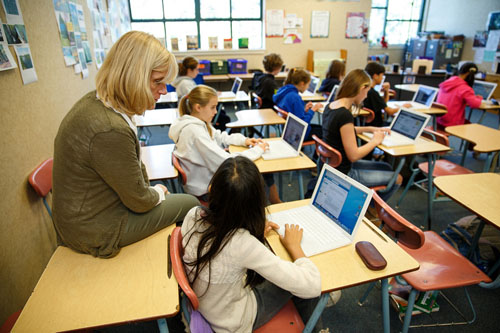
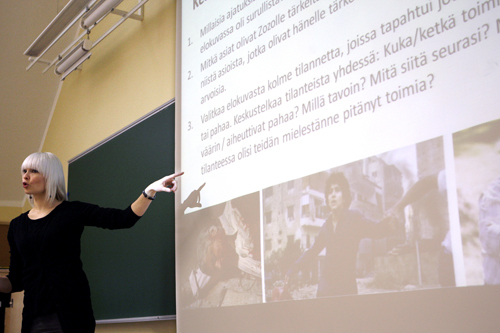
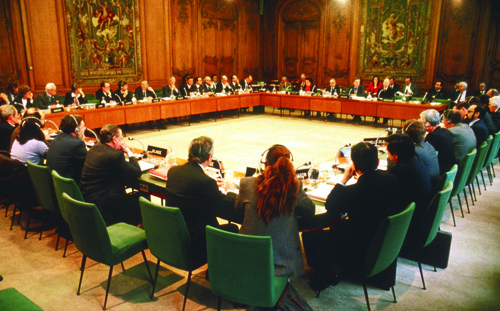
Πρόσφατα σχόλια